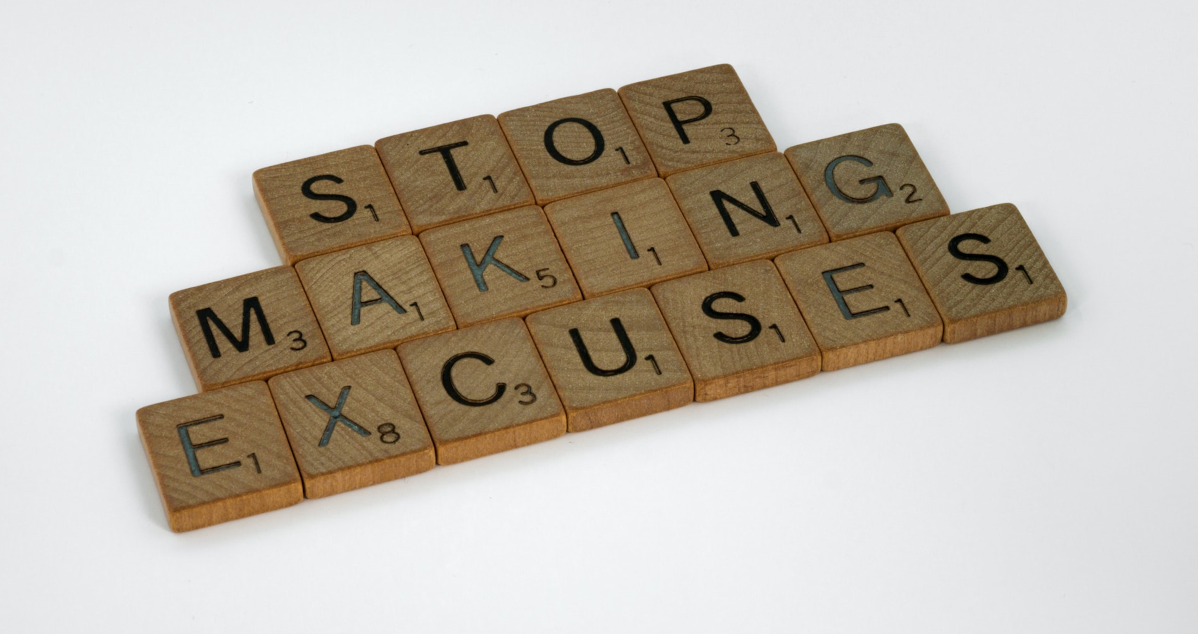Building a Routine After a Layoff
Been laid off? You can accelerate new employment by building a proper routine into your week. This combined with proper prioritization makes for progress that will help keep you positive and moving forward. I’ve have experienced unexpected unemployment and job searches several times in my life. Be it after Dynatrace was acquired by Thoma Bravo (run!), the car accident that put me on unpaid disability from Mattermost, and most recently the rolling RIF at Cognigy. What I’ve confirmed is that you have to come at the search as a job in itself. You also have to maintain discipline and structure.
Routine
A routine is key to having that structure. This form of discipline not only increases the number of interviews you’ll have, it also increases their quality. This is all part of “keeping the pipeline full.” If you are in sales, you understand the importance of continually working to keep the pipeline full. If you aren’t familiar, the concept is that sales people need to keep prospecting and searching for new business concurrent with trying to close the current deals they are involved with. That makes up for their “pipeline.”
I’ve seen it multiple times that an Account Executive gets absorbed in a whale (giant opportunity.) Even though they have the time, they stop prospecting. They stop working the minor opportunities. When that whale disappears, they are left with nothing. This same concept applies to the job seeker. Very hard to get moving and motivated again.
At least once I had a role that I wanted badly. As the confidence and excitement grew I stopped pursing other opportunities. Weeks later when that opportunity fell through I had nothing to look forward to. Getting started “all over from scratch” was demoralizing.
Lastly, if you don’t have a routine, it is very easy to get caught up in a vacation-like routine. Socializing with friends, lounging around, watching TV. This distracts you from the path you need to be on. It also creates a vicious cycle where you are trying to distract yourself from the depression and pain of no progress and next to no hope.

Planning
For any goal, you need a routine, so start with what your priorities are. From there you can design the plan so that you are able to stay on track with the sub-components of that routine and that goal. For me, my primary goal is finding new employment. That has a key dependency that I stay healthy. I’ve found it to be easier to get the routine around finding work first. When you can’t see your way out of the forest, you can always see what the next step is. Once you are moving forward and feeling a bit of progress you can put energy and time into the health part of your routine. If it takes longer than you expected to get some progress, then put some time into the health part sooner rather than later.
Staying Healthy
If you don’t take care of yourself, you can’t take care of others. It is more than just eating properly and getting enough sleep. Getting in some regular exercise is a must. I’m not talking going for a heavy run and building up a good sweat. Don’t get me wrong – there is value to that type of exercise. I’m just talking getting the heart rate out a bit, getting away from your environment and disconnecting
If you were exercising prior to being laid off, odds are you have it already as an established habit. And if it isn’t a habit, you at least have the process and method. Now if you weren’t exercising when employed then schedule that time at least every other day. For me, there is a Subway a half mile away. Now that 1 mile walk isn’t much, but I can take a turn or two around various streets and extend it. It also helps in that I more often order a healthy meal. Not something I do if I drive to Burger King.
Besides physical health, mental health is important too. This will be helped by the primary routine that is keeping the pipeline full and the opportunities appearing. I’ve broken this out into volunteering and reading a well as cleaning/reducing possessions and donating those.
Take every interview you can. They are good practice. I’ve already blown a few. One I wasn’t that interested in, the other I really wanted. I’ve now thought out better answers to specific questions as well as modified how I prepare for interviews.
Schedule the Routine
First look at the tasks you need to do. Break them up into three groups. Those are A, B and C tasks. The A tasks are the most critical to your goal. The B tasks contribute to the A tasks happening or to achieving your goal but aren’t as critical. And the C tasks are minor and often distracting. These are the items you try to rationalize as relevant, and perhaps important, but get in the way of getting enough A and B tasks completed. My A tasks are related to opportunities I am already in communication on and have a deadline of some sorts coming up.
When you schedule your days, look at when you are most effective for certain tasks. For example, blogging is one where the time of day really matters for me. I’m not as good in the morning, but it is easier to get some content created. Then later in the day when I am more awake and sharper I can refine. If I try to start writing later in the day, my perfectionism tremendously slows me down. But by getting the bulk written when I am more relaxed and less awake makes it easier to later apply that perfectionism. I also find that I have an easier time publishing the article if I do it earlier in the morning. The other alternative there is if I need to get the article published that day, then I’m more likely to be delayed by the perfectionism.

As part of this routine, you should have a task at the beginning that is part of seeing your routine put to practice. For me, I put the cloths for the next day out the evening before. I end the day by reviewing the current day’s progress and tasks, see if any of them need to be put in the calendar for the next day. I’d also like to get myself to write down 3 good items from the day. Being grateful matters. Some of my past coworkers have it much worse than I do. That helps keep things in perspective. It also gives me motivation to try and help them also.
I had originally planned to publish my calendar here broken down by what happened each day. That really didn’t show the concepts here that I had wanted to share. It also hasn’t firmed up as much as I’d like also. Instead I’ve documented the different tasks and have prioritized them here. It might look like some priorities are out of order, but they actually have relationships and dependencies where this makes the most sense to me.
Ordered Priorities
On weekdays, the order of my priorities are:
- Take the calls/meeting. related to open roles. When you do this, make sure any tasks you commit to get added to your notes/todo list. I find it a good idea to end with confirming next steps and timeline, as well as stating something like “I’ll send my resume to (name), and also sign up for the free trial.”
- Be prepared and early for any upcoming calls or meetings. Part of being prepared is to have researched the company, its solution* and the job description. At least once I’ve walked out to my office 5 minutes before a call only to run into technical difficulties with my laptop. Threw me off for the call. I break this out separate because you need to be conscious to schedule time and make sure this gets done.
- Be dressed and in the office by 9am. I started off saying 8am, but didn’t always achieve that. There were nights I didn’t sleep well, or mornings where I was up at 6:00am and got into some good learning or blogging until 7:45am. The 9am goal makes it easier to “not break the chain.” This is farther down the priorities list since there have been times I’ve had interviews at 5am because of time zone differences. It isn’t always easy to get showered and back into the office on time.
- Make sure to take care of my physical health. This means planning time for lunch, or at least having healthy snacks within reach. I often combine this with a good walk. Helps me disconnect as well as come up with ideas on other things to do.
- Follow up on any asks or tasks related to opportunities in progress. It is embarrassing to reach out to a recruiter to check status and they remind you that you still haven’t sent them the resume they requested. Again, make sure all tasks end up in your todo list.
- Take a review of new job openings on LinkedIn. I also have a list of firms where friends have connections. I check the “Careers” page for them at least once a week. I’m not to the point of having time to reach out to firms where I want to work to see if they might have un-published openings where I would be a fit. Key item here – many startups limit the openings they post. Some of this is because they are trying to hide (for example) that the VP of Sales left or that they are hurting for certain skillsets.
- Once a week I follow up on all my opportunities where I should have heard an update by now. This is in the calendar for Wednesday mornings. If I’ve already pinged the recruiter once or twice (depending on how far along it is or my interest level), I’ll send a last message saying I’m moving it to my delayed column, but for them to reach out if anything changes. Don’t invest energy where it is purely a one way process. It is much more likely you are wasting your time. It also means that others are running into similar issues and the quality of the hires at this firm are not as good. Use that energy to find other opportunities or invest more time into the opportunities that are being run professionally.
- Unless there is something urgent, I make a point of wrapping up the day by 5am. Some of this is to maintain balance, mental health and time with the family. A few items to point out here, I do often work in the evening, but it is enjoyable work – trying out a company’s SaaS offering, reading their blogs or training on new technology.
- There is a routine to this end of day. I make sure I review the following two days to be sure I’m prepared plus glance over my todo list to see if there are any tasks I’ve forgotten. Sometimes those tasks are big enough that I need to schedule time for them.
- I’m contemplating working in some time to read before I go in to see the family and have dinner.
- Get in some cleaning and organization. A cluttered desk is distracting. Not being able to find certain computer parts slows me down from setting up a system to test a firm’s software on.
- Get in some studying and learning. The priority was earlier for opportunities, but at this stage is to learn in areas where I have desire to work in that space. Might be AI/MIL, might be GAN, or K8s.
- Working in doing some “good” for my mental health. The 3 items prior to this one contribute to better mental health. But it is important to have a few other items interwoven into the day. These little wins help keep me positive and also remind me how much I know and have to offer.
- So besides my “what I can offer” post, I also have put more time into helping BSA Scouts earn specific merit badges. For example, the Programming one got me to create projects in Java and JavaScript, as well as learn about Scratch. It also is really rewarding to do a screenshare with a young Scout as we peer-debug in Java. To see them tell you what code to type in and how to debug some code is very exciting. Not only does it improve my skills at explaining concepts to different audiences, it also is very rewarding. The “Learning to Program Java with Robots” book also gets them very interested.
- I’m also trying to get more organized and thin out all the possessions I’ve accumulated. I shoot for Saturdays to bring a box of useful tech, clothing and office equipment to a local charity.
- Work on social media and blogging. This is very important, but not at the expense of balancing my time. So I won’t stay in the office later than 5 working on this. That being said, I often blog at 5 or 6am when I get up, or in the evenings while watching the news. It is a good idea to have a schedule of when you want to publish what topic. For example, I had planned to do more “X Week(s)” or “X Month(s) after” posts, but between COVID, the holidays and my current load of opportunities it’s gotten buried. It also is a good idea to be commenting on or reposting the posts of others. Especially those that are also looking for work.
- Work on a side project. Something as part of my portfolio that also might have the potential to generate income some day.
- Stay social – both personal as well as professional. Besides regularly reaching out to recruiters I’ve interacted with in the past, I should be making a more refined effort to reach out to 3 past coworkers a week just to check in and catch up.

On weekends I make sure the following are covered:
- Get in some exercise.
- Make sure to take donations to a non-profit.
- Rest, decompress.
- I’ll also do some learning or blogging, but that is something enjoyable.
Certain items in my list might not be relevant for you. Blogging or building an IT project might not be relevant for your interests and goals. But most of these items are relevant and make a huge difference.
Photos by Brett Jordan on Unsplash
* Sales Engineers don’t “sell software.” They “sell solutions.”
